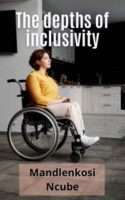Yeah, that’s how it seems in the world I live in. I live in a world where I know Xitsonga and I’m called ‘kwere-kwere’. If I know Afrikaans I’m coloured. Whereas if I speak English I’m a disgrace to the black society for not speaking my own language. That is how I feel. Sometimes I wish I couldn’t understand other languages because of what I’m labelled as.
Ndiyanixelela, I’m scared to speak ulwimi lwasekhaya, my own mother tongue, kaloku kuna li batho abatlo’n’ bitsa kamabitso. Batho who don’t even know other languages. Ani khulumi Xitsonga yi kusi vhatanibukela hansi. Vha tanivhita yi mavhitho. Abazuyi-understander le situation ndikuyo. Ba nahana gore kabapala kanti no. This isn’t poppyhuise. It’s a real world for goodness sake! This is South Africa, a country with eleven official languages. It’s quite funny that the same people that discriminate against me are the people who know only two out of those eleven. Geez, I’m not even South African at that.
I wish South African people could see multilingualism the same way I see it. Being able to communicate in many languages is inspiring, beautiful and extraordinary. It isn’t as lame as people make it out to be. It’s magical.
I want to encourage all those who are scared to learn other languages to learn those languages. I’m telling you, the feeling you get after speaking a certain language. Damn! But ke people won’t understand. And that is a good thing. There’s nothing wrong with being different, multilingual. Two languages are not enough, try 3 or 4 and even 7, it will do you good. Multilingualism is not a curse, it is a blessing that few have. You create a multilingual you. Being multilingual is not a curse.
***
This piece of writing was created as part of the WritingMe Writing Clubs with Sophumelela High School, Western Cape. Find out more here.

